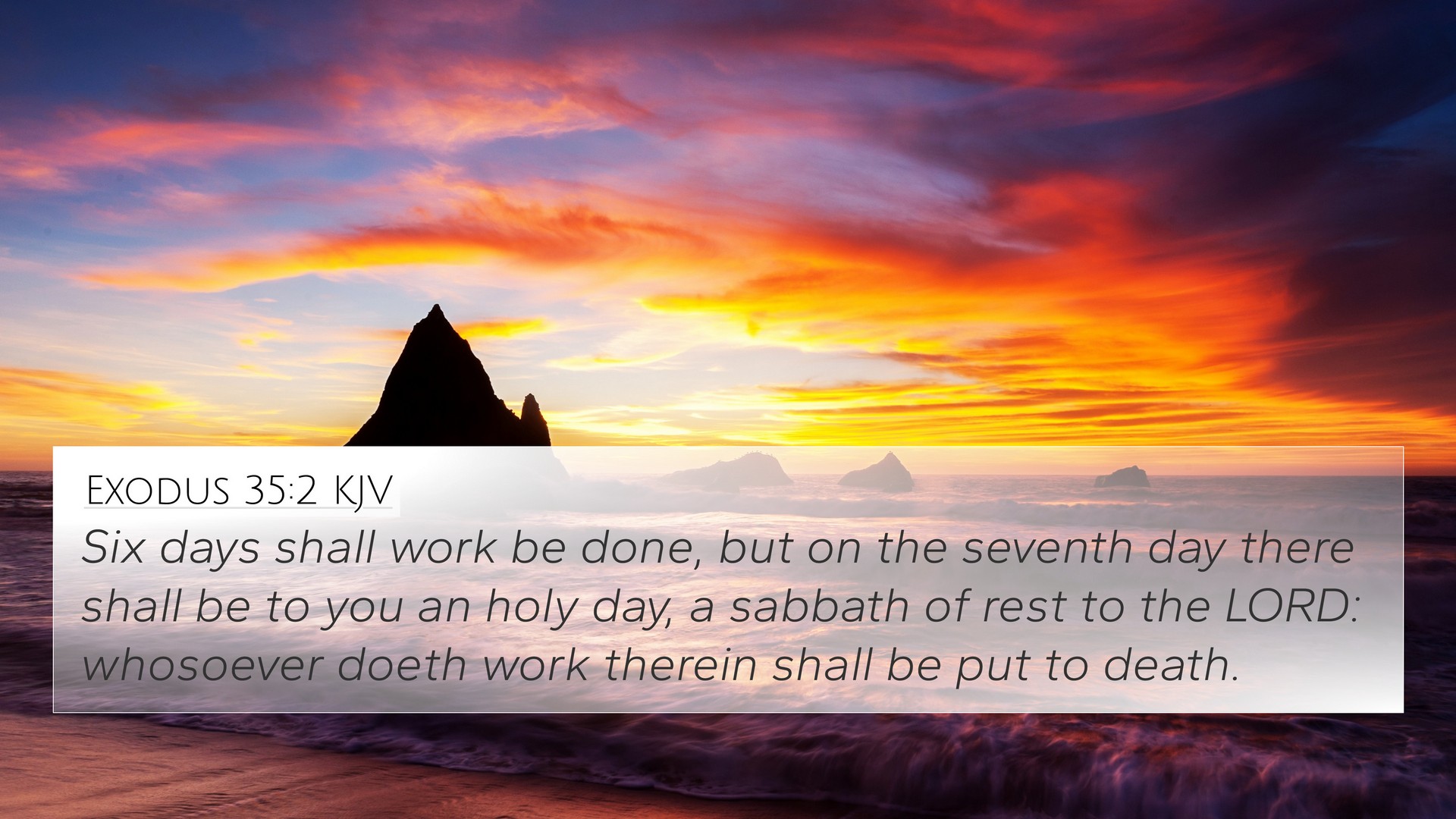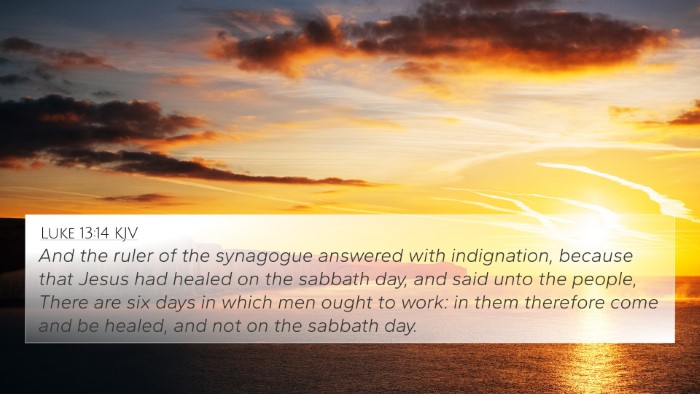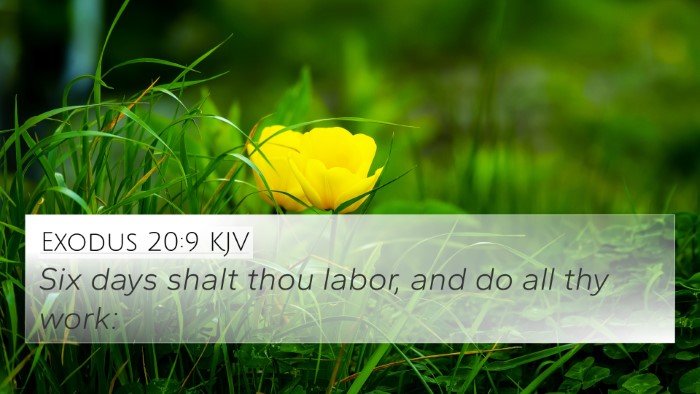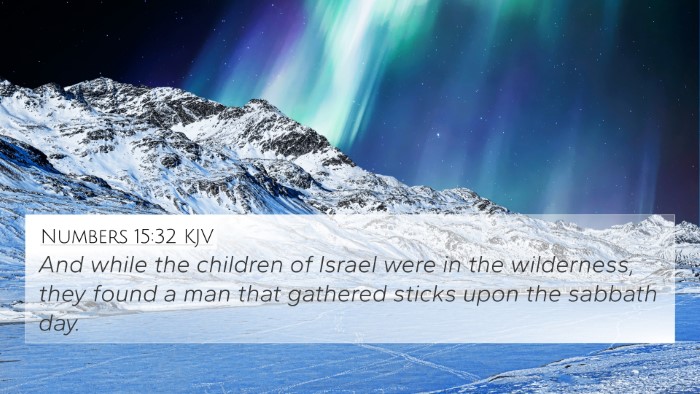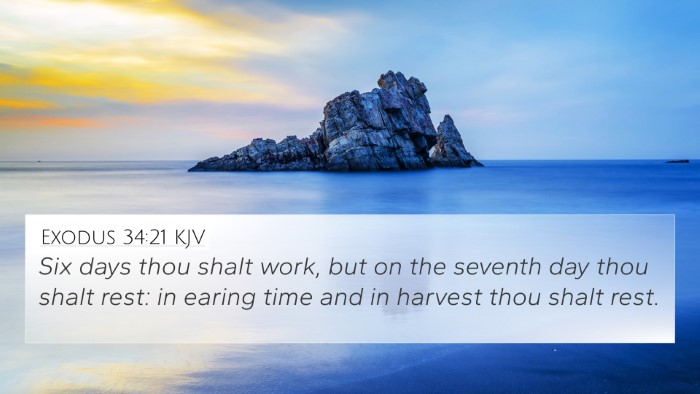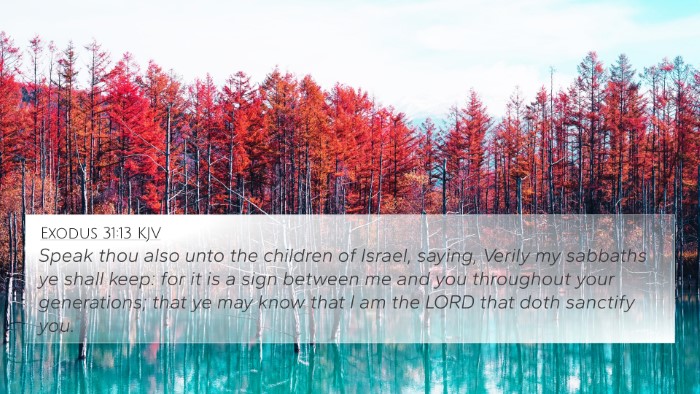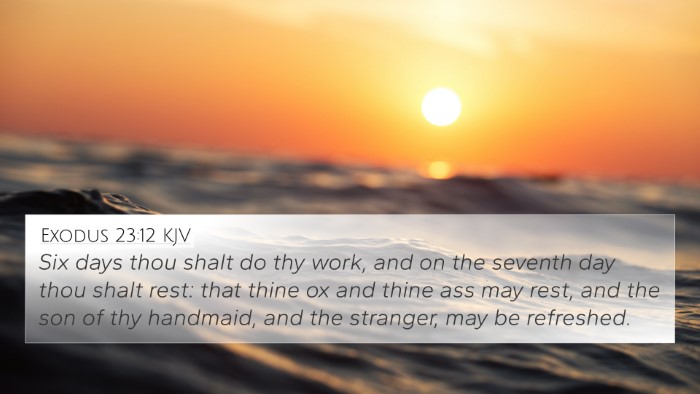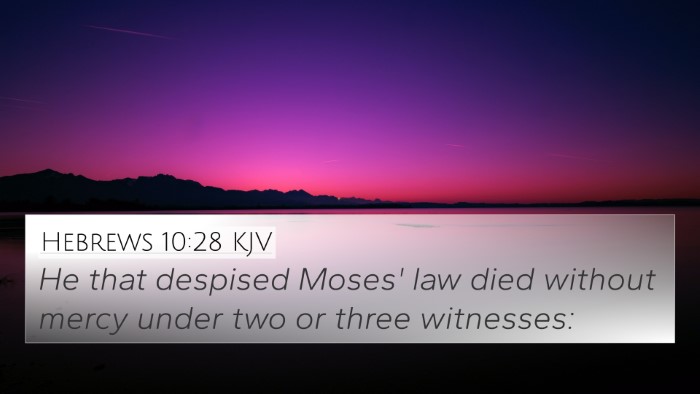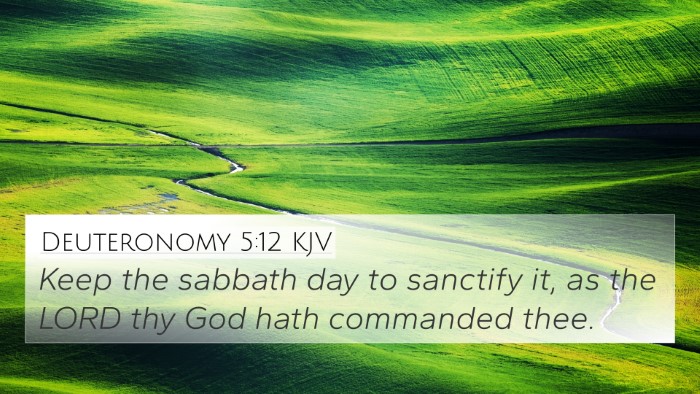Understanding Exodus 35:2
Exodus 35:2 states, "Six days shall work be done, but on the seventh day there shall be to you an holy day, a sabbath of rest to the Lord: whosoever doeth work therein shall be put to death."
This verse emphasizes the significance of the sabbath as a day of rest dedicated to the Lord. The command to cease from work on the seventh day illustrates the importance of rest and spiritual reflection in the rhythm of life established by God.
Interpretation Insights from Public Domain Commentaries
Matthew Henry's Commentary
Matthew Henry points out that this command encapsulates the essence of the sabbath as not only a day of physical rest but also a spiritual pause. It serves as a time to remember and honor God, thus reinforcing the relationship between divine commandments and the well-being of God’s people. He emphasizes that this rest is crucial for the body and soul, providing a necessary break from labor and a time for communion with God.
Albert Barnes' Notes
Albert Barnes elaborates on the harsh penalty specified for work on the sabbath, interpreting it as a reflection of the seriousness with which God regards the observance of His commandments. He discusses how this punishment underscores not only the importance of the sabbath but also the broader principle of obedience to God's law. Barnes emphasizes that rest on the sabbath represents a profound act of faith, trusting in God's provision and sovereignty.
Adam Clarke's Commentary
Adam Clarke provides insights into the cultural and religious context of the sabbath observance. He explains that the sabbath is a reminder of God's creative work and acts as a celebration of the freedom from slavery. Clarke points out that the prohibition of work emphasizes a shift in identity from one of servitude to one that acknowledges God as the sole sustainer. He notes that this day sets apart God's people, reflecting their unique covenant with Him.
Cross-References Related to Exodus 35:2
- Genesis 2:2-3: This passage recounts God's rest on the seventh day after creation, establishing the sabbath as a divine ordinance.
- Exodus 20:8-11: The Fourth Commandment expands on the concept of the sabbath, encouraging remembrance and observance.
- Deuteronomy 5:12-15: Here, the sabbath is framed within the context of Israel's liberation from Egypt, reinforcing its meaning as a day of rest and freedom.
- Isaiah 58:13-14: This verse highlights the blessings associated with honoring the sabbath, emphasizing its role in spiritual enrichment.
- Mark 2:27: Jesus teaches about the purpose of the sabbath, indicating that it was made for humanity's benefit.
- Hebrews 4:9-10: The author discusses a "sabbath rest" that remains for the people of God, tying the physical observance to a deeper spiritual reality.
- Colossians 2:16-17: Paul explains how sabbath observances are a shadow of Christ, providing insight into the transformation of sabbath understanding in light of the New Covenant.
Thematic Connections and Parallel Verses
The theme of rest and devotion to God is echoed throughout the scriptures, illustrating the interplay between physical rest and spiritual rejuvenation. This connection is vital for understanding how the concept of sabbath transcends mere cessation of labor. Below are key thematic connections:
- Spiritual Reflection: Days recognized for worship highlight the importance of spiritual reflection, as seen in Psalm 46:10, "Be still, and know that I am God."
- Redemption: The sabbath represents spiritual redemption, linked with Exodus 31:13 where God asserts that observing the sabbath is a sign of His covenant with Israel.
- Trusting God: In Matthew 11:28–30, Jesus invites those who labor to find rest in Him, paralleling the physical rest prescribed in Exodus 35:2.
Conclusion
Exodus 35:2 serves as a crucial reminder of the sacredness of rest in the Christian faith as well as God's sovereign role in sustaining life. By understanding the significance of the sabbath through various biblical texts, we see a clear invitation to integrate a rhythm of work and rest in our lives. The connections made through cross-referencing enrich our study and understanding of this essential biblical principle.
